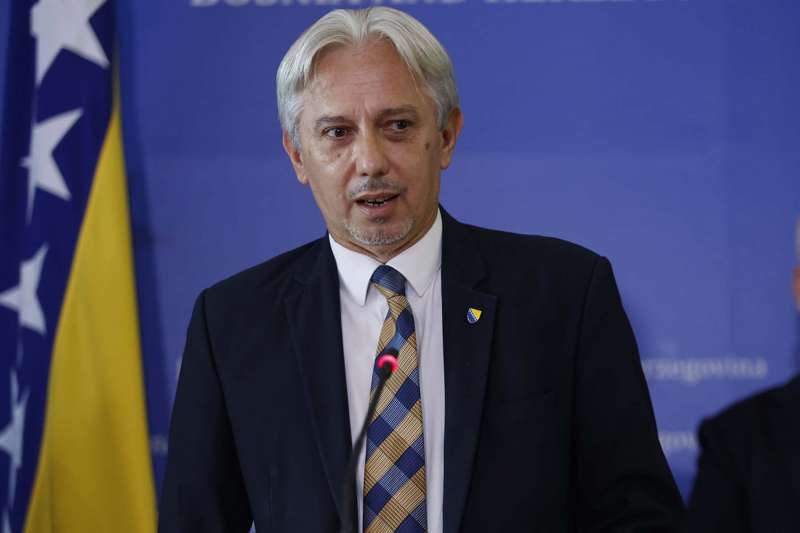SARAJEVO, August 29 (FENA) - The latest judgment of the European Court of Human Rights (ECtHR) on the appeal of Slaven Kovačević destroyed the concept of legitimate political representation of the constituent peoples, and as the Court found, the state of Bosnia and Herzegovina should ensure primary civic representation in the institutions, which returns sovereignty to the hands of all citizens. The transition from an ethnic to a civic concept is inevitable on BiH's European path.
This was highlighted today at a press conference in Sarajevo organized by the Club of MPs of the Democratic Front (DF) in the House of Representatives of the Parliamentary Assembly of Bosnia and Herzegovina and a delegate in the House of Peoples Dženan Đonlagić on the occasion of the latest ECtHR judgment.
Reflecting on the importance of the judgment, its legal and political implications, the advisor to the Chairman of the Presidency of Bosnia and Herzegovina Željko Komšić and the applicant of the mentioned appeal, Slaven Kovačević, said that ethnic representation in government institutions is a direct attack on democracy, reminding that the Council of Europe (CoE) rests on three fundamental principles that include - democracy, the rule of law and the protection of human rights.
As he said, the judgment of the ECtHR established the right to free choice guaranteed by the European Convention on the Protection of Human Rights and Fundamental Freedoms, i.e. that one of the pillars of democracy - the active voting right of the applicant was violated, and that he was prevented from exercising that right.
"I asked that all citizens of Bosnia and Herzegovina elect their head of state (BiH Presidency), whether it is individual or collective in direct elections," specified Kovačević, and that, in order for all the previous judgments - Sejdić-Finci, Zornić, Pilav, Šlaku, Pudarić to be meaningful "that everyone can run for office (passive right to vote), then we must all be able to vote for all candidates".
He added that the same principle must be ensured with regard to the House of Peoples, i.e. open the possibility for citizens to elect these people, "because they answer to us for their work", and in connection with what, referring to the Opinion of the Venice Commission, he asked the ECtHR one of three possible scenarios, including its "shutdown" with the condition that the protection of collective rights is transferred to the House of Representatives.
In this context, Kovačević concluded that it is necessary to change the current paradigm in BiH, that is, to move from an ethnic to a civic concept, which is inevitable on the European path, stating that there is no country in the EU that has ethnically-based organization.
"The Dayton Peace Agreement has achieved its legitimate goal - the establishment of peace and we are in the process of implementing peace - Kovačević pointed out, underlining that the claims that the Dayton PA is being overthrown by the said verdict are not true.
In terms of expectations from the international community, Kovačević states that he is interested in what the Quinte countries, the EU Delegation and, finally the OHR, "which has been embarrassed by this judgment", will say about everything, and how they see the protection of human rights.
He also reminded that, according to the Constitution of Bosnia and Herzegovina, the European Convention is directly applied and takes precedence over all other rights, and in this context, he stated that the judgment of the Constitutional Court in the 'Ljubić' case is in complete contradiction to the verdict of the ECtHR, and that, accordingly, the verdict in the 'Kovačević' case is applied.
Furthermore, Kovačević warned that non-implementation of ECtHR judgments, as well as incitement to its non-implementation, constitute a criminal offense and that the competent institutions of Bosnia and Herzegovina should be involved.
At the beginning of his address, he said that he noticed that there are some who would question his ethnic declaration.
"I am a Bosnian and Herzegovinian by nationality because I am a citizen of BiH, and that is not the same as ethnicity and those who do not know the difference, that is their business. These two things are different in any other country in the world. I did not emphasize my ethnicity in my lawsuit, I did this as a citizen of Bosnia and Herzegovina," Kovačević concluded.
(FENA) S. R.













